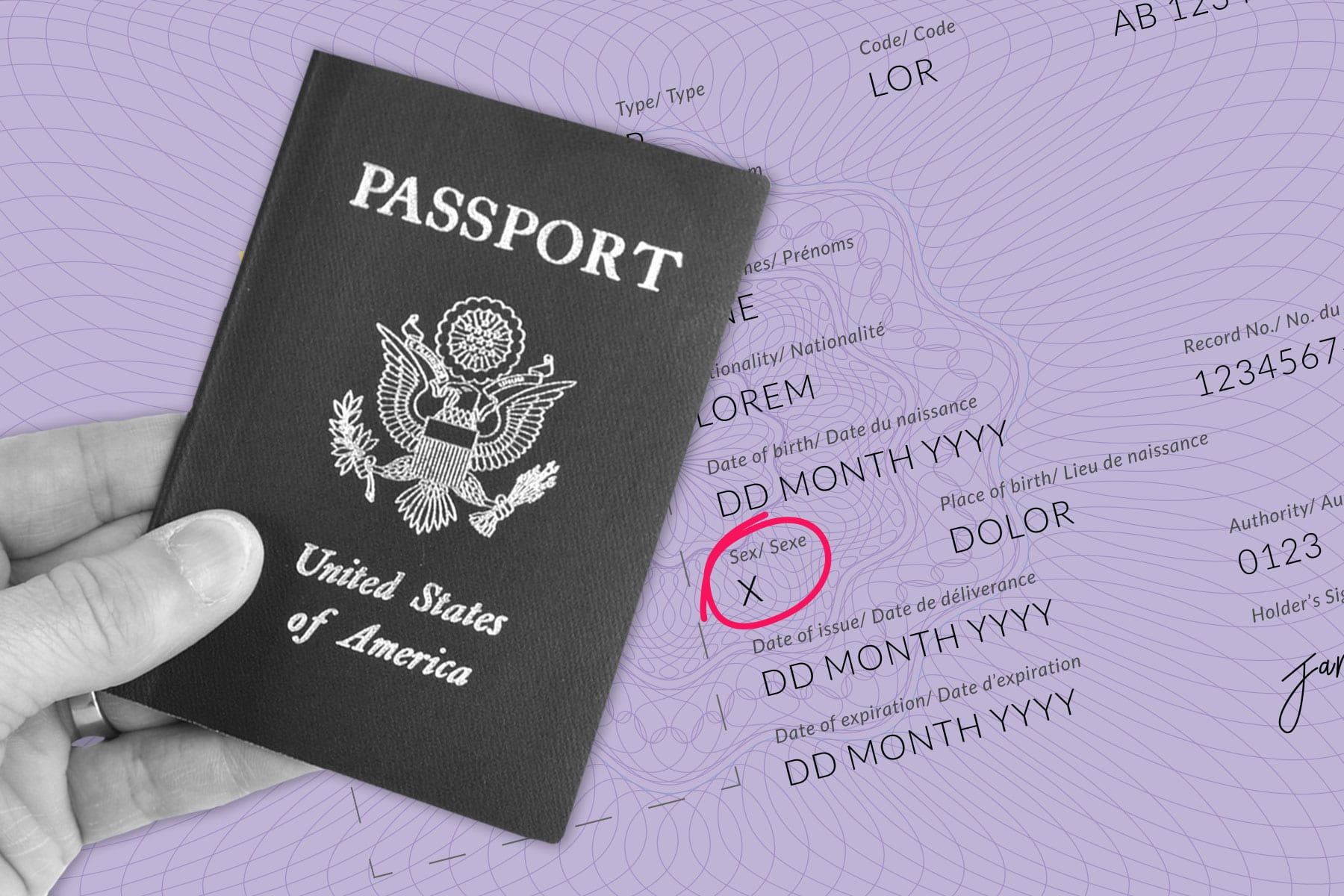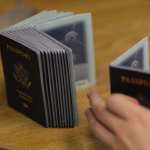Arkansas has been issuing state IDs and driver’s licenses with “X” gender markers since 2010. Oregon and Washington, D.C. rolled out the option in June 2017. Since then, 20 states have started issuing IDs with gender markers other than “M” or “F,” and Illinois, Indiana and New York have plans to start in the near future.
So the State Department, which announced last week that it would move forward in issuing “X” gender markers on passports, is hardly breaking new ground. Still, many transgender, nonbinary and intersex Americans have expressed serious reservations about the option, which is expected to be in place by year’s end.
“I feel that it might add unwanted attention to myself,” said Bran Eveland Cron, a 36-year-old graduate student in Illinois. “Don’t get me wrong. I’m happy for the folks who are happy about the ‘X’ designation. I just don’t want anyone to be subjected to any further harassment, or worse.”
In 2015, the National Center for Transgender Equality’s U.S. Trans Survey revealed that 46 percent of trans and nonbinary people in the United States don’t have identification that lists their correct name or gender. Lack of accurate identification can bar people from access to housing, voting, employment, banking, travel and countless other basic services, advocates say.
The Biden administration’s new interim policy has also removed the requirement that transgender people provide proof of gender transition from a physician, allowing gender diverse Americans to self identify. Advocates have hailed the policy as a watershed for millions of transgender Americans who have long had to validate their genders through documentation of often expensive, unattainable or sometimes unwanted transition-related medical care.
Gordy Carmona, a nonbinary Texas resident, is among them. Texas has yet to issue gender neutral IDs, and Carmona increasingly wants an ID that reflects who they are.
“I don’t know if I wish to transition in any other direction, but it would make me feel more comfortable knowing that I least have one document that has the correct gender marker on it,” they said.
Still, some are opting not to update their IDs with an “X” gender marker.
Many gender diverse people have expressed confusion over how the new passports will work. Some fear they will be forced to adopt the new gender markers, even though they will be entirely optional.
Like Cron, some told The 19th they worry the new IDs will invite discrimination and violence when they are forced to present identification. In the United States, transgender people have long reported serious difficulties when flying, even though the TSA has been accepting ‘X’ gender marker IDs from states since they were issued, and airlines increasingly offer third gender categories in booking. A 2019 investigation by ProPublica found that though transgender people made up just 1 percent of the population, 5 percent of Transportation and Security Administration (TSA) civil rights complaints from 2016 to 2019 dealt with how the agency screened transgender people.
I just don’t want anyone to be subjected to any further harassment, or worse.
Mohxie ThunderCrow, a Coloradan and self-identified hermaphrodite, has stopped flying altogether after agents pulled them aside for a search and determined that a woman TSA agent would conduct the top portion of the pat-down search and a man would conduct the bottom.
“And then you get on the plane and everybody’s looking at you,” ThunderCrow said. “People are wondering, are you a terrorist? It’s uncomfortable.”
These kinds of stories, plus prodding from LGBTQ+ activists, pushed Biden to promise on the campaign trail that he would expand gender options on IDs if elected president. Last week’s announcement makes good on that objective.
But some think that the new passports will help the government track people, a fear exacerbated by a 2018 report by The New York Times that the Trump administration was preparing to “legally define” transgender people out of existence. Following the administration’s passport announcement, many trans people tweeted that even if the Biden administration is LGBTQ+ friendly, another administration, one hostile to transgender people, could use the information against them.
Arli Christian, campaign strategist with the ACLU, has been at the forefront of the battle to get states and the federal government to expand gender marker options on IDs. Christian said concerns about government surveillance are valid, but added that the federal government already has ways to track gender.
“Not that I’m condoning tracking all of our population — if we are going to have to keep that kind of data, we don’t need a gender marker as one of those data pieces,” Christian said.
Legal experts and advocates say every person should decide for themselves what gender marker works best. Still, there are a few considerations one can take into account when renewing a passport or state ID.
Christian notes that some people who have obtained “X” designations for state IDs have run into issues because they haven’t been able to update their passports. Travelers should consider if having mismatching documents might create issues for them, Christian said.
“If you are showing multiple documents, and you have an agent who is uninformed about that policy … that could become an uncomfortable situation,” they said. “It is one that we hope, with calling over a supervisor or, if needed, getting some advocacy support, we can clear up.”
Christian also added that security agents are not trained to screen based on gender. “That being said, some may look at it, and some may question you.”
Many advocates have called for the removal of gender markers from IDs altogether, but Christian notes that the United States government cannot unilaterally remove gender markers from passports. The International Civil Aviation Organization, an agency of the United Nations, sets the standard for passports worldwide.
“Everyone must make a decision between an ‘M,’ ‘F’ and ‘X,’” Christian said. “Those are the three options and our passports are required to have one of those three options. However, the beauty of this policy is that the decision is and should be in each of our hands as to which of these designations feels most appropriate for us.”
William Raillant, a communications officer for ICAO clarified that “X” designation is not actually a nonbinary gender marker. Rather, it actually means that a person has declined to list “sex” on their passport.
“I’d like to clarify that ICAO passport standards refer to sex, not gender,” Raillant wrote. “Furthermore, there is the possibility to remove the sex from the document. This is indicated with an X, which is a placeholder character signifying ‘unspecified.’”
Shawn Meerkamper, senior staff attorney at the Transgender Law Center, has never heard of a cisgender person seeking out an “X” gender marker, meaning that “X” designations are not yet ubiquitious and gender diverse people could draw extra scrutiny in option for the “X.”
“But I also think that it’s also just important to keep in mind that this is not new in the world,” Meerkamper said. “There are a number of countries that issue international travel documents that have some sort of nonbinary option on them.”
India, Nepal, Pakistan, Canada, Australia, New Zealand and Malta all issue passports with “X” designations.
While many do worry about being outed while traveling, others point out that they don’t have the option of passing as cisgender. Others don’t want to pass.
“In consideration of other people, some people would not want to be outed, right? Girl’s already out,” ThunderCrow said of herself. “She’s out and proud… We’d rather have people know, especially when you go through airport scanners.”




